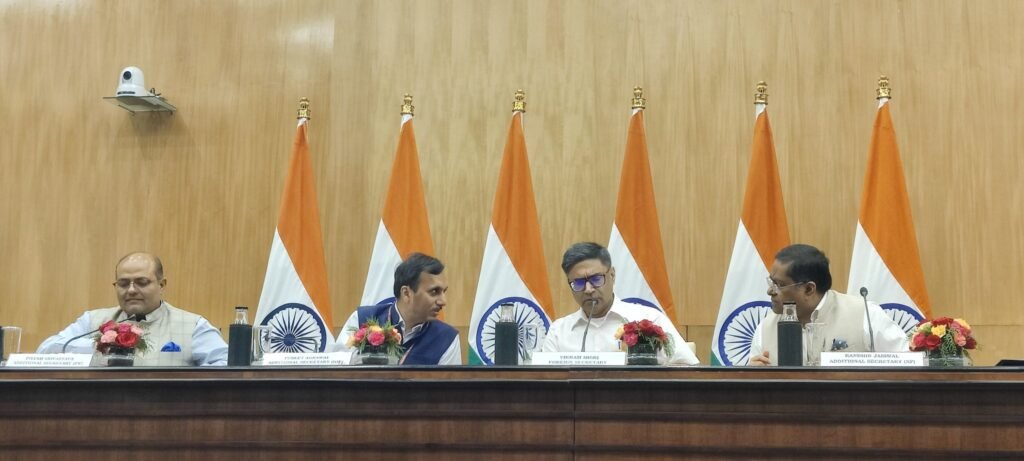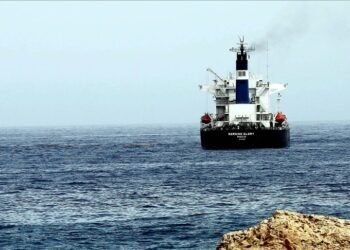NEW DELHI, India: Prime Minister Narendra Modi’s State Visit to the Maldives on July 25–26, 2025, is more than just a ceremonial stopover. The visit comes at a time when the Indian Ocean Region (IOR) is going through a lot of changes in terms of politics, and Male is also going through a leadership change. It is a strategic reaffirmation of India’s maritime diplomacy and its changing relationship with the Maldives.
This is Modi’s third trip to the Maldives as Prime Minister. He went there in 2018 and 2019, which helped calm things down after a time of tension with former President Abdulla Yameen. His most recent visit will be the first by a Head of State or Government since President Mohamed Muizzu assumed office in November 2023. It will also mark the 60th anniversary of Maldivian independence and the 60th anniversary of full diplomatic relations between the two countries.
As a sign of the strong ties between India and the Maldives, Prime Minister Modi has been asked to be the Guest of Honor during the national celebrations on July 26.
From responding to crises to forming full partnerships
India and the Maldives have had a long history of going back and forth between trust and tension. In 1988, New Delhi’s quick military action in Operation Cactus stopped a coup attempt in Male, making India a reliable partner in regional security. India has always been the first to respond to emergencies in the Maldives, whether they were natural disasters, political unrest, or economic problems.
But during President Yameen’s time in office (2013–2018), the relationship was put to the test because the Maldives leaned toward China because of shady infrastructure projects and a lot of debt. This made people in New Delhi nervous about China’s growing influence in the Indian Ocean.
The election of Ibrahim Mohamed Solih in 2018 changed the trajectory of events. India promptly gave loans, lines of credit, and help with infrastructure. PM Modi was the first world leader to visit after Solih’s inauguration. But Mohamed Muizzu’s win in the 2023 election brought back strategic ambiguity, especially because his campaign’s “India Out” slogan made it clear that he was against India’s involvement in Maldivian affairs.
Muizzu’s foreign policy has become more practical, even though there were initial worries. His state visit to India in October 2024, discussions with PM Modi on the sidelines of COP28 in Dubai, and attendance at Modi’s third swearing-in ceremony in June 2025 have all helped to build a cautious but positive diplomatic path.
Making the maritime and economic connections stronger
Before the visit, Foreign Secretary Vikram Misri said that India-Maldives relations are “comprehensive and multifaceted,” and that they are strengthened by ongoing high-level political engagement. He said that Modi’s visit will be based on three main ideas: working together strategically, bringing the economy together, and building up the country’s infrastructure.

Here are some of the most important things that are predicted to happen:
Negotiations are going on for a Free Trade Agreement (FTA) and a Bilateral Investment Treaty (BIT). These are meant to boost trade and investor trust between the two countries.
A look back at the India-Maldives Joint Vision for Comprehensive Economic and Maritime Security Partnership, which was set up during Muizzu’s trip to New Delhi last year.
Modi is set to open parts of the Greater Male Connectivity Project (GMCP), a $500 million project that would change the way people live and work in the area. It is being paid for with Indian grants and credit lines. When it’s done, it will connect the islands of Male, Villingili, Thilafushi, and Gulhifalhu and change how goods and services move across the area.
Maldives’ development goals were in line with the expansion into new areas of collaboration, such as renewable energy, fisheries, water security, and social housing.
India is one of the Maldives’ top three trading partners right now, with commerce between the two countries worth around $500 million. India has also given a lot of money, including currency swaps, budget help, and buyer’s credit. This makes it clear that India is a development-first partner, not just a transactional partner.
Setting up regional security and resilience
Cooperation on marine security is the main thing that keeps the India-Maldives relationship strong, along with trade and infrastructure. India has helped Male improve its Exclusive Economic Zone (EEZ) monitoring, coastal radar equipment, and marine domain awareness (MDA) through events like the Colombo Security Conclave.
India regularly sends patrol boats, observation planes, and technical training to the Maldives National Defense Force (MNDF). Joint naval drills, sharing intelligence, and training personnel at Indian defense schools have all strengthened defense relations even more.
Foreign Secretary Misri said that this collaboration is more than just military equipment:
“India is still helping the Maldives build its capacity, whether it’s through training, infrastructure, or maritime platforms.” We are also working on common dangers like climate change, trafficking, and being ready for disasters.
This kind of thinking is in line with India’s Vision MAHASAGAR, which sees the Indian Ocean as a place where people can work together based on trust, tradition, and openness. This is different from China’s high-leverage port development strategy seen in Hambantota (Sri Lanka) and Gwadar (Pakistan).
Bridging the gap between politics and institutions
There are still some people in Maldivian politics who don’t like India, but diplomatic relations have been strong and wide-ranging since 2025. India has welcomed several Maldivian ministers in the last six months, including those in charge of Defense, Finance, Foreign Affairs, Health, and the Environment. India has also received a parliamentary delegation led by the Speaker of the People’s Majlis.
The High-Level Core Group (HLCG) is in charge of making sure that the common vision is put into action. This year, they have already convened twice, first in Male in January and once in New Delhi in May. This bureaucratic system protects against political instability and makes sure that things stay the same between administrations.
Partnership is when you are close to someone and they are consistent.
India’s message to the Maldives is still firm but friendly: “Geography makes us neighbors; trust makes us partners.” This is true in a region where small states often have to walk a tightrope between opposing powers.
Prime Minister Modi’s trip shows that India is quietly confident in its long-term plans, which are based on growth, disaster response, and diplomatic talks, not debt or threats. As New Delhi changes its ‘Neighbourhood First’ policy after the elections, the Maldives is still an important test case for how India may combine strategic patience with strong diplomacy.
In the Indian Ocean, where tides change and loyalties change, New Delhi is giving Male something more valuable than help or weapons: reliability.
–Dr. Shahid Siddiqui; Follow via X @shahidsiddiqui
WATCH, LIKE & SUBSCRIBE CHANNEL FOR EXCLUSIVE NEWS

















